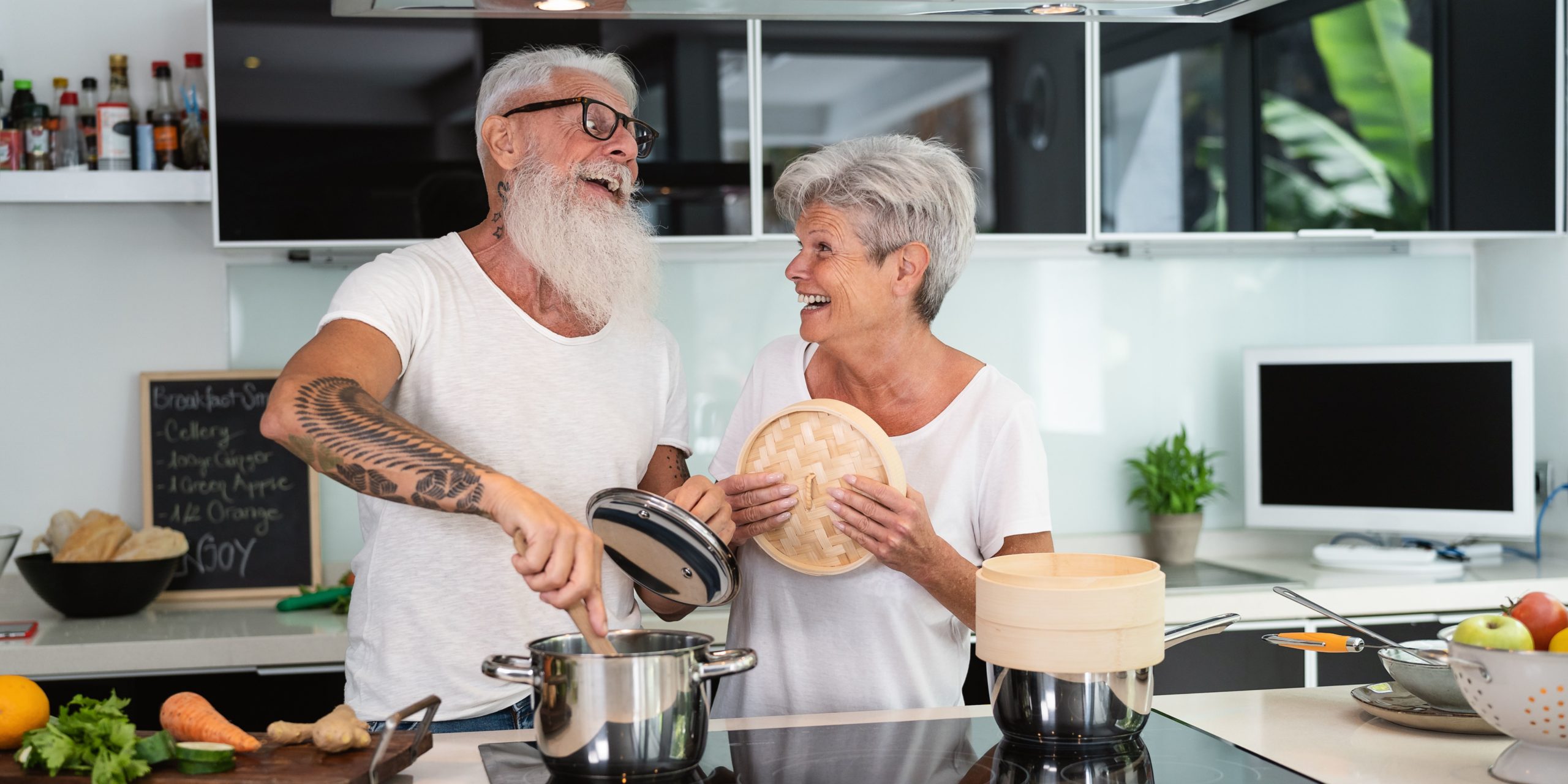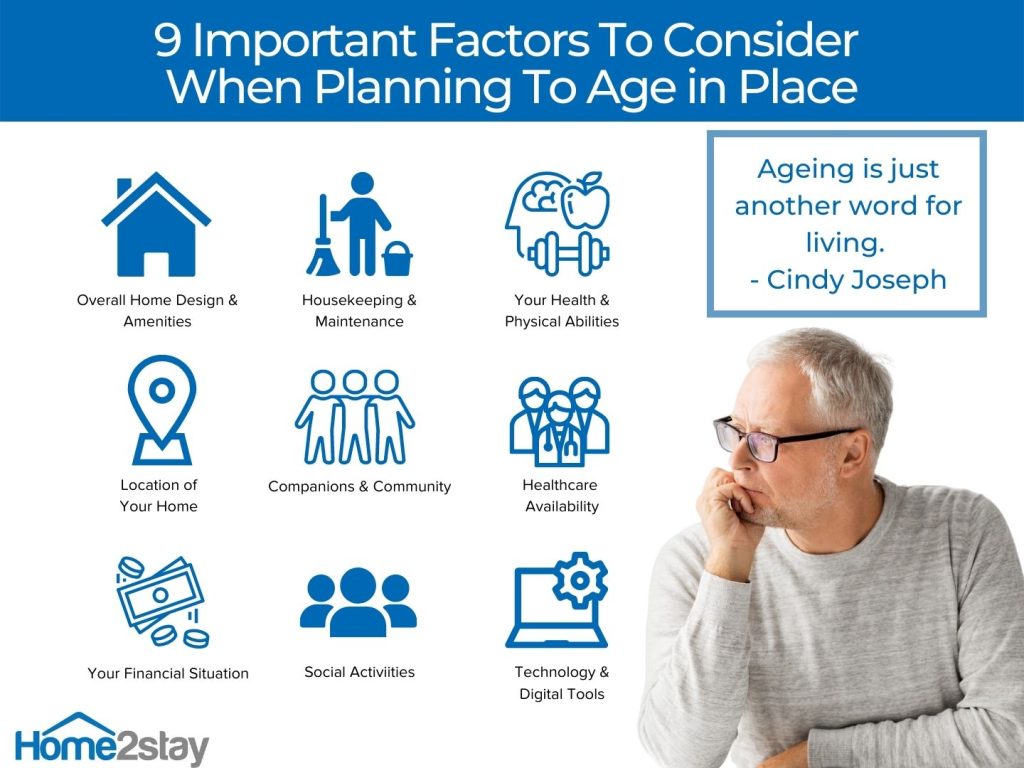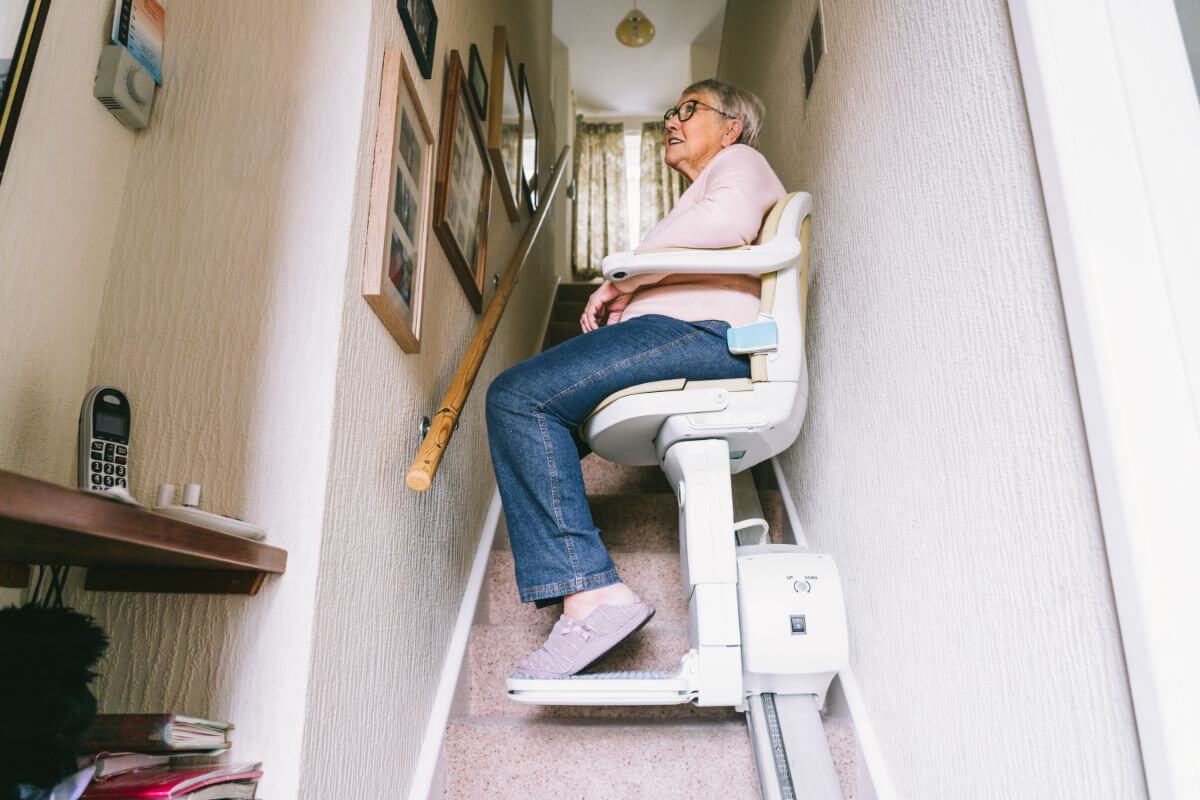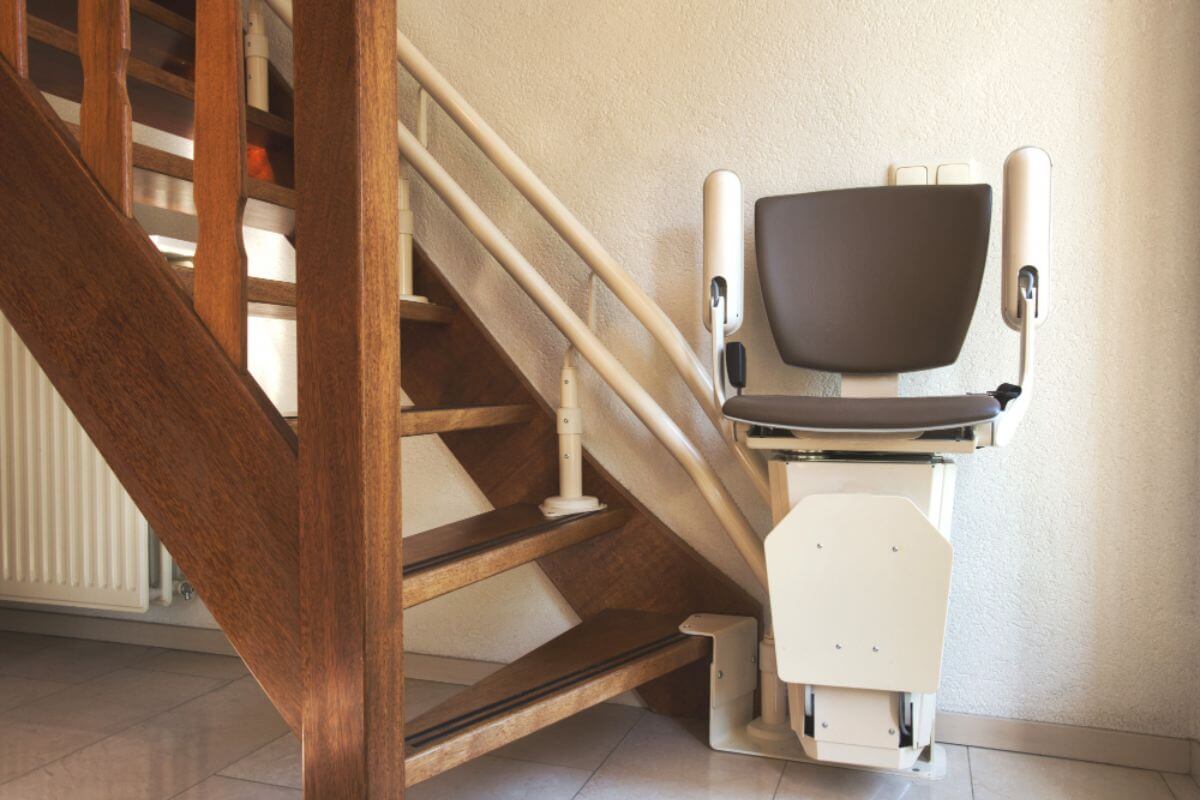9 Important Factors for Aging in Place

Today’s senior living communities provide more services and amenities than ever- with benefits ranging from the practical (on-site healthcare, transportation, and house maintenance) to the extravagant (like hotel-like dining options and indoor pools). However, studies and surveys show that today’s elderly population would still rather age at home, or stay in the place they love and are familiar with, for as long as possible.
An NIA/TELUS Health Survey found that 91% of Canadians of all ages, and nearly 100% of Canadians 65 and older, intend to support themselves so they can live independently and securely in their homes, for as long as possible.
When one advances in age, certain daily activities, such as getting around the community, getting groceries, cooking your meals, maintaining your home, and taking care of yourself, may become more difficult.
What are the key factors you should consider when you’re planning to age in place?
Overall home design and amenities
How aging-in-place-friendly is your home?
It is best to make a home safety inspection to reduce the risk of an accident or a fall in the future.
The American Association of Retired Persons recommends a few simple changes that will make your house safer, such as:
-
-
-
- Non-slip floor surfaces
- Grab bars in toilets
- Lever-handled doorknobs
- Ramps along entranceways or thresholds
- Personal alarm systems that allow you to call for assistance in an emergency
-
-
Other key factors to consider are the width of entrances (could they accept a walker or wheelchair?), the height of the stove and cabinets, and sufficient lighting.
These are things that, depending on your future physical capabilities, can bring unique problems and also safety risks.
The best way to assess your home’s accessibility and safety is to seek the help of local accessibility and safety experts like Home2stay. We are familiar with the local municipality’s requirements and can complete the assessment as efficiently as possible.
Get a professional home analysis done- It will inform you of changes to your home that will improve its functionality and allow you to age in place comfortably.
Housekeeping and maintenance
What will be your living condition as you age in place: Will you be living alone, with your senior spouse, or with younger able-bodied individuals?
A younger family member can help with housekeeping and maintenance so you don’t have to worry about it yourself. However, if you will be living alone or with fellow seniors, you have to check whether you have family members or friends residing nearby who can help you, or you can opt to hire outside help.
Fortunately, there are different types of help you can get in Canada- to make cleaning and household maintenance more manageable for you. Here’s the estimated cost of some of these services:
House cleaning costs between $40 and $65 per hour, for one cleaner. The total cost depends on the size of your home, the type of cleaning necessary, and your location.
The cost of cleaning a three-bedroom, 2,000-square-foot house, according to Thumbtack, is $150 to $250, and it is $80 to $110 for a one-bedroom apartment. In general, outsourcing house cleaning would cost you $165 on average.
If you cannot cook for yourself anymore, there are also several options to consider for your day-to-day meal planning. One is to hire a personal chef, which comes with an average hourly rate of $20.67. For more budget-friendly meals, you can subscribe to meal delivery services like Meals on Wheels and Better Meals starting from $6.25, while more gourmet choices are Stock Up Cafe or Travelling Gourmet.
Home care services are a growing industry in Vancouver, BC. Service providers may come in the form of companies or individuals, and you can get assistance with various household chores such as cooking, cleaning, laundry, and light housekeeping. Some even provide care and companionship for seniors- like aiding in bathing, getting dressed, and even accompanying elderly individuals to appointments.
Feel free to look and ask around, and you might even find kindhearted volunteers who offer these kinds of services- for free!
You can utilize the internet, ask your family and friends, or check with your local community help center to get credible recommendations.
Your health and physical abilities
To maintain your independence at home for as long as possible, you must possess good physical health. By incorporating a balanced diet, frequent exercise, and minimal stress into a heart-healthy lifestyle, many illnesses such as heart disease, arthritis, dementia, and depression can be prevented.
Aside from factoring in your current health and physical situation, you should also be prepared for future health and possible emergencies that may arise. Example: how can someone get notified, if you fall and are unable to get up?
Technology now can be life-changing and life-saving. There are a variety of home alert systems on the market today, like push-button alert systems. Bluetooth sensors can operate as in-home tracking devices that alert the right emergency contacts if there appears to be a lack of activity for an extended length of time.
Wearable devices such as the Yamay Smart Watch, PopGlory Smart Watch, and MorePro Smart Watch have fitness trackers that can monitor your blood pressure, heart rate, blood oxygen level, and activity status. Having such a device can give you real-time updates on your physical condition and you can be immediately aware if something is not in the normal range.
You can start checking options available in Vancouver and surrounding areas by searching for “senior assistive devices” on the internet.
Keeping your home safe and equipped for aging in place is important to prevent untoward incidents so it is highly advisable to invest in safety/accessibility equipment tailored to your health and mobility conditions or limitations. For example, installing a stairlift or vertical porch lift will help you go up and down the stairs with ease and minimize the risk of stair accidents. Something as simple as putting grab bars or safety poles in key areas in your home will also significantly lower the risk of falls in your space.
Location of your home
Do you live in a location where you can get your basic goods and necessities easily and conveniently? If you cannot drive or walk long distances, do local businesses offer delivery to your place?
Assuming that you will no longer be able to drive as you age- check for alternate transportation options available to you. Can you walk to certain places? Is accessible and senior-friendly public transportation available in your town?
Is your house close to healthcare facilities, hospitals, restaurants, shops, and other activities? Will you have easy access to social activities and common-interest groups to combat possible loneliness?
Families, relatives, and trusted friends nearby are important factors when considering a location. They can help you in an emergency or regularly lend a hand, whether it is organizing your papers, doing chores, or driving you around.
Wonderful bonuses are locations that are close to nature- Studies have shown that exposure to nature has been linked to many health benefits, like improving attention, lowering stress, lifting your mood, reducing the risk of psychiatric disorders, and even increasing your level of empathy and cooperation.
Companions and community
Will you be living independently or with others? The demographics of your housemates will greatly influence the quality of your living condition as you age in place.
It would be ideal to have some long-time friends, relatives and familiar friendly faces around you. But remember that you can always make new friends too!
Get to know if there is a significant senior population in your community and what types of support systems your community offers for the elderly.
Some local communities may provide extra services for seniors, including free meal deliveries and volunteers who accompany seniors, do chores, and run errands on their behalf. The more services and activities your community offers, the better- because these promote social engagement and can help you stay active in your golden years.
Don’t be afraid to engage with others, and you might find help and friendship from lovely people around you!
Healthcare availability
Everyone, no matter the age, requires healthcare. As you grow older, it’s best to have easy access to the healthcare that you need.
Look into options for medical insurance and long-term care insurance. The latter helps pay for home care that isn’t covered by health insurance, and it can make a major difference when it’s time to hire a caregiver.
You should also visit your primary care physician regularly. If traveling or going out is not convenient for you, there are options for teleconsultations and medical apps, which help make sure that you stay up to date on your medical needs.
Do you require care for a specific health condition? Make sure that there are specialists who can cater to your unique needs.
Keep in mind that there’s no harm in preparing for the worst-case scenario: While you may desire to age in place, life may have different plans for you.
A temporary stay in a hospital, rehabilitation, or care facility may be required due to an injury, surgery, or illness. It’s helpful to keep a list of the facilities and medical practitioners who are the best in your area. You might want to note too if they have a waiting list.
Your financial situation
How much do you need monthly to age comfortably in your home? How much budget can you allocate to home safety improvements? Your living arrangements would depend largely on your financial situation.
You must first have a clear grasp of your financial capabilities before tailoring solutions to your budget. Pay attention to your daily spending as well.
Fortunately, current technology allows you to handle your finances easily from the comfort of your home- you can use online banking, online insurance claims, or online payment methods.
Look into the tax exemptions and benefits for seniors in Canada, which can be availed of depending on the individual’s financial situation. Let’s go over some of the more popular choices, and you can also check if you are eligible for additional credits and deductions when you file your return:
-
-
- Medical Expense Reimbursement
-
As you age, medical costs might become a significant portion of your spending. Any related expenses that you haven’t previously been reimbursed for can be deducted from your income taxes when you file.
What are deductible medical expenses? Prescription drugs, doctor visits, assistive equipment like hearing aids, and even air conditioning to improve the air quality in your house, etc.
This is CRA’s complete list of medical expenses that are and are not tax deductible. It is advisable to keep your receipts and statements after filing your taxes in case you need to provide evidence for any costs you claim.
-
-
- Senior Tax Credit
-
You can claim a non-refundable tax credit if you are 65 years of age or older, at the end of the tax year.
To qualify, your net income must be below $89,422, and the amount you can claim varies depending on your income level.
In 2021, the age benefit amounted to an average of $7,713 per person. Find out more about the age benefit amount here.
You can also transfer all or part of the age amount to your spouse or common-law partner after filing your tax return if you are eligible but do not need it.
-
-
- Pension Plan
When you stop working, your source of funds may come from a private pension plan or a public pension plan like the Canada Pension Plan.You are entitled to a credit of up to $2,000 if you have recorded qualified pension income on lines 11500, 11600, or 12900 of your tax return.
Qualified revenue/income may include a pension or annuity payment you got for a pension or superannuation plan, a payment from an RRSP, or a payment from sharing your spouse’s or common-law partner’s pension.
Dividing or sharing your pension amount with your spouse or common-law partner can be a smart move- you can transfer pension income from one partner to the other so the family pays fewer taxes.
- Pension Plan
-
You can check out this link for more information on how pension splitting and sharing can help you.
-
-
- Disability Tax Credit
You can apply for the Disability Tax Credit (DTC) if you or a family member has a disability and is 65 years of age or older. The purpose of this credit is to ease the burden of additional disability expenses.In 2021, the maximum disability amount was $8,662 per person.
- Disability Tax Credit
-
-
-
- Home Accessibility Tax Credit
You may claim the Home Accessibility Tax Credit (HATC)– a non-refundable credit of up $10,000 if you’ve made renovations to improve accessibility in your home.
- Home Accessibility Tax Credit
-
The following works and installations may qualify for the HATC: Installation of wheelchair ramps or a stair lift, enlarging your entrances, etc.
Relatives who make home modifications on behalf of a senior living with them can also claim this credit on their refunds.
Social Activities
We all need to interact with fellow human beings. High blood pressure, heart disease, obesity, a weakened immune system, anxiety, depression, cognitive decline, Alzheimer’s disease, and even death have all been related to social isolation and loneliness.
The potential of getting isolated as a result of physical decline and/or transportation concerns is one of the drawbacks of staying at home. Seniors who desire to age in place must find methods to still be active in their communities, socialize, and maintain relationships with friends and family.
It is vital that where you age-in-place has social engagement offerings that you can easily participate in. It can be as simple as being welcoming to home guests, taking a walk around the block to chat with your neighbors, going shopping in your neighborhood, spending time with others, walking your dog around town, and enjoying social interactions.
Some communities organize senior-specific activities, like Bingo nights, ballroom dancing, classic movie days at the local cinema, etc.
Technology and digital tools
Technology has come a long way in helping make our lives easier, and aging-in-place is no exemption. As mentioned earlier, you can utilize digital tools that can help you age in place safely and conveniently.
Thankfully, you don’t have to be a computer genius to utilize digital tools which can help you age in place safely and conveniently. Use technology to communicate with others virtually- use the texting, iMessaging, and video screen-sharing features of your smartphone or digital tablet to help you stay connected with others.
Apps that you will find useful are ride-hailing apps to help you book a ride when you need one, and door-to-door delivery services for your essentials like groceries, food, and medicine.
You can also use social media like Facebook and Instagram to find out what’s going on in your neighborhood.
Do you frequently forget to take your medication? You can use your phone’s built-in alarm feature or download a third-party app to notify you when it’s time to do something.
If you’re living alone and worried about your safety, you can consider installing an emergency alert system that can easily call for help with just the push of a button.
When it comes to home safety equipment, modern innovative products such as walk-in tubs or barrier-free showers can help you take baths or showers safely, and mechanical car seat lifts or scooter lifts can help seniors or individuals with mobility challenges and disabilities easily get in and out of their vehicle.

Conclusion
Aging in place has several advantages: it is familiar, filled with good memories, and you get to stay where you are comfortable. However, living in a home that has not been updated to accommodate an aging individual has risks, especially if they experience health problems.
Addressing these key factors as early as now will prepare you for aging-in-place. Take the right steps and you can live the life you want at home and enjoy a good quality of life in your golden years.
If you want to find out more about available programs and services for the elderly in British Columbia, you may visit these sites:
Provincial Benefits and Programs for Seniors in British Columbia
Healthcare Programs and Services for Seniors in British Columbia
Seniors’ Services Directory for British Columbia
A home is not just a place to live but becomes a place that tells a story of family and a lifetime of memories. As the years pass and we age, we need a home that can adapt to our changing needs.
Home2stay aims to make your transition to aging-in-place seamless and easy so that you can continue to live surrounded by the people and things you love.
If you are interested to learn more, please contact us today.






Leave a Comment
We'd Love to Hear Your Thoughts Got something to say? We're all ears! Leave your comments below and let us know what you think. Your feedback helps us improve and serve you better. Can't wait to hear from you!